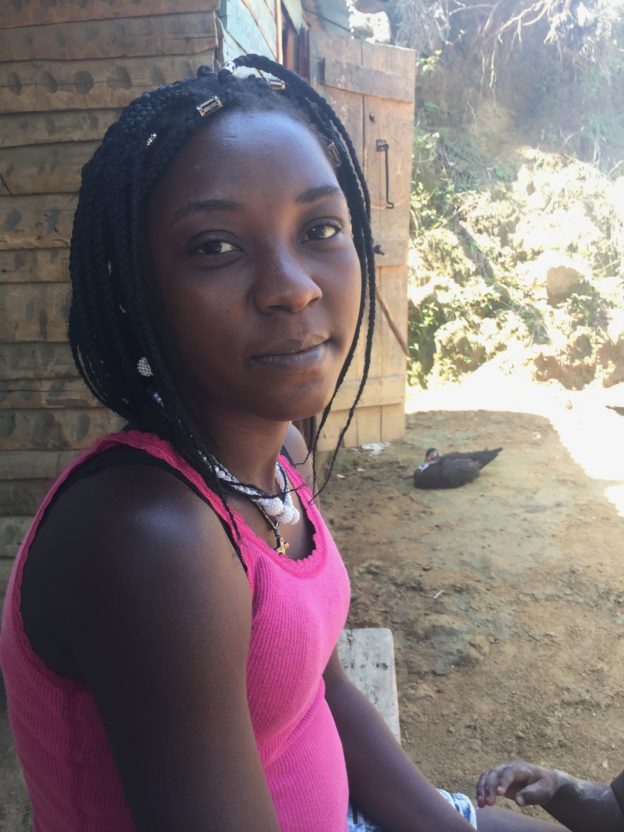Miramène’s journey through CLM was somewhat unusual. She left Gwo Labou, where she lives and where she was part of the program, for three months. We don’t often have members who have such large gaps in their experience.
She was sick with persistent diarrhea. Her family took her to the government health clinic in Savanèt, where she was told that she had cholera. She was sent to the cholera treatment center there. She never went, however, because she was convinced that cholera wasn’t her problem. Instead, she went to the home of a medsen fèy, a practitioner of traditional herbal medicines. She stayed with him for weeks until the diarrhea was gone, drinking herbal preparations, then she left for Port au Prince, where she stayed with a cousin while she regained her strength.
While she was away, her case manager Ricot worked with her mother. The older woman took care of Miramène’s livestock. Miramène lives in a lakou with three houses in addition to hers: her parents’ and those of two sisters. One of the two sisters also qualified for the CLM program, so it was easy for Ricot and the other case manager to stay on top of the situation.
When Miramène was finally strong enough to come home, her assets were all in place. Though her goats didn’t increase, her pig had three piglets. She was also able to buy ducks and turkeys. She even added a cow to what she owned.
The cow is especially interesting because it has nothing directly to do with the CLM program. The father of her little girl, who lives in the Dominican Republic, bought it for her during one of his visits.
And his support for Miramène is probably worth dwelling on. It turns out that he was willing and able to do a lot for Miramène and their girl. She was, for example, the first CLM member in her neighborhood to finish work on her house. The man heard about the opportunity, and he came to Haiti long enough to help her through the process. And then he gave her an expensive cow.
This makes you wonder why Miramène was a CLM member in the first place. With a strong family structure in place where she lives and substantial support from her girl’s father, she might have been okay without the program.
But we couldn’t have known that. At the time she joined CLM, she had been without the man’s support for some time. As she explains it, he was living with his wife in the Dominican Republic, and the wife was pregnant. He focused all of his support on his pregnant wife. So, we took Miramène into the program. At the time, the case managers who selected her probably felt that they had no choice.
Miramène’s plans now that she graduated are straightforward. She’ll take care of her livestock and farm the land that’s available to her. She’s already got everything she needs to plant black beans for a spring harvest. She’s not interested in small commerce. “People buy on credit, then they get mad at you when you ask for your money.”
